Having the right pair of gloves will make your life so much better when working in the water, whether you are doing a two-hour dive in Norway or driving a zodiac for a long-range OTB. The right pair of gloves will depend on what you are doing and how long you are doing it. One of the other factors is the water temperature/ weather. Suppose you need to use your hands a lot during a dive, like pushing a button on a Navigation board, or be able to use your hand right after the dive, like climbing a ladder, shooting a gun. Lastly, how is your tolerance to the cold?
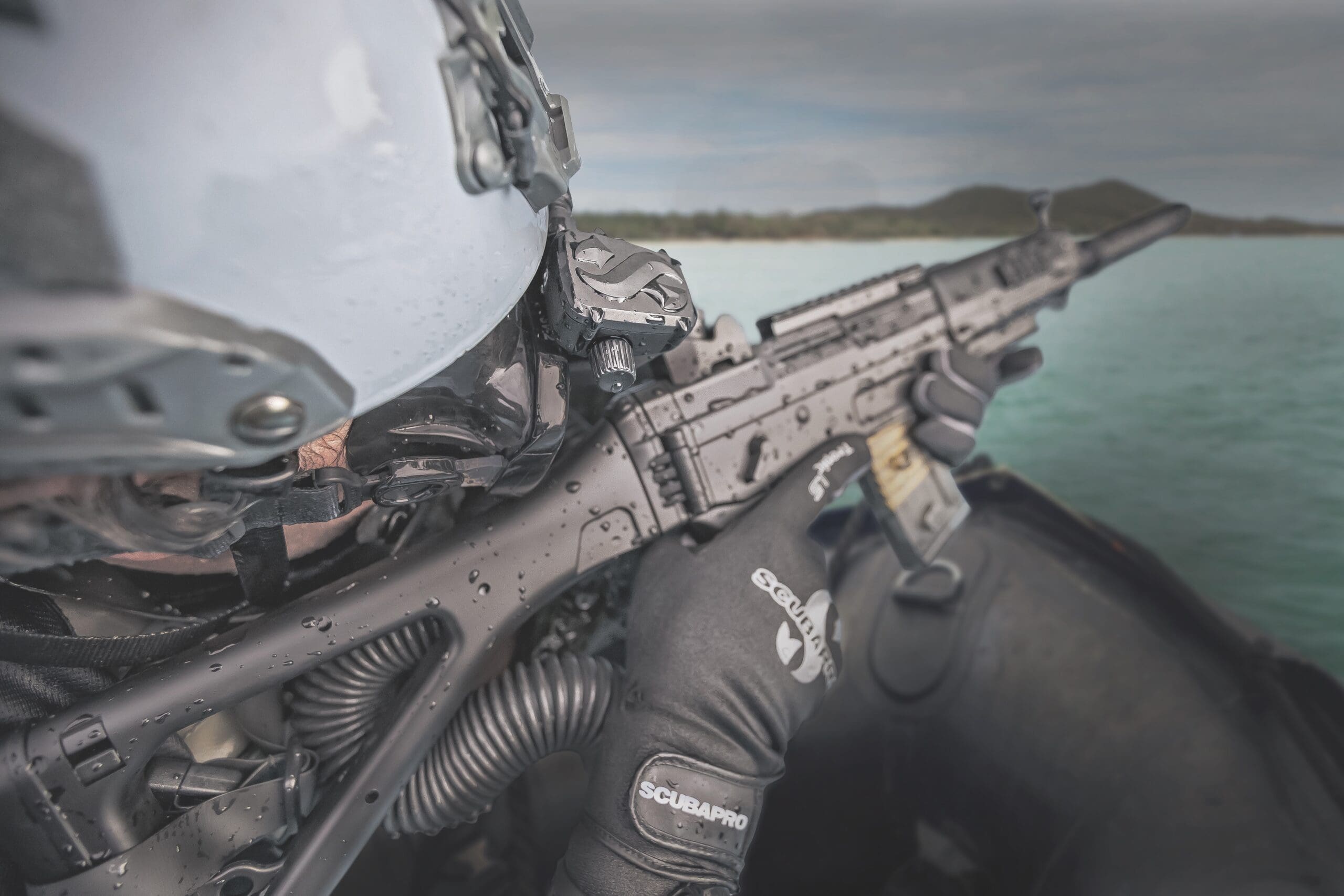
These will be the main factors to take into account when choosing the thickness of the gloves. The colder the water, the thicker you might need to go.
1-3mm: water between 60- 75 ° F (16-24 ° C)
5-7mm: water between 45-60° F (8-16 ° C)
Here are the two main things you might want to think about when choosing a pair of gloves for military use.
• Freedom of movement with a minimum amount of thickness that allows you the thermal comfort and protection you will need.
• What is material is on the palm and fingers? Can the gloves be used to grab and hold metal or plastic?
Make sure when you are trying them out to grab different things to make sure they will work. If I am in a store, I will always grab the medal racks to see how they work. They need to be suitable for everything for climbing, shooting, and holding onto different things.
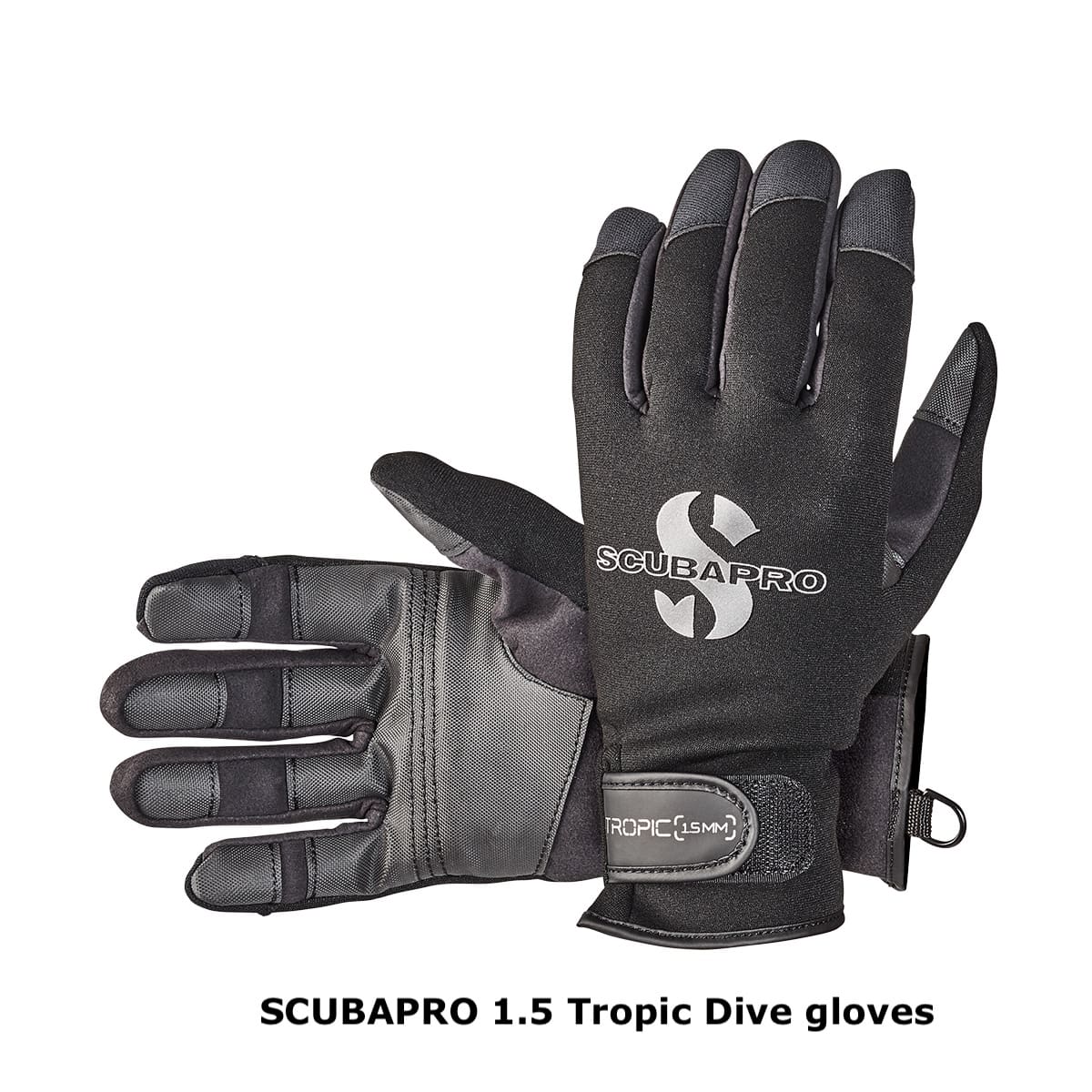
Dive gloves come in a variety of thickness levels between 0.5mm to 7mm. A pair of 1.5mm Tropical gloves that have a leather palm is an excellent place to start. Gloves are like booties because even in warm water, you can have a thicker bootie on, and your feed will not get hot. Always have a warmer glove on without is being that much of a pain. Some tactical gear companies are making gloves designed for being in a wet environment that are also good for diving. The WETWORX gloves from S&S Precision come in two styles. One is thinner for warmer water, and one is a little thinker (2mm) for colder. I know they have put a lot of work into them, and they are nice gloves as more units get back into the water.
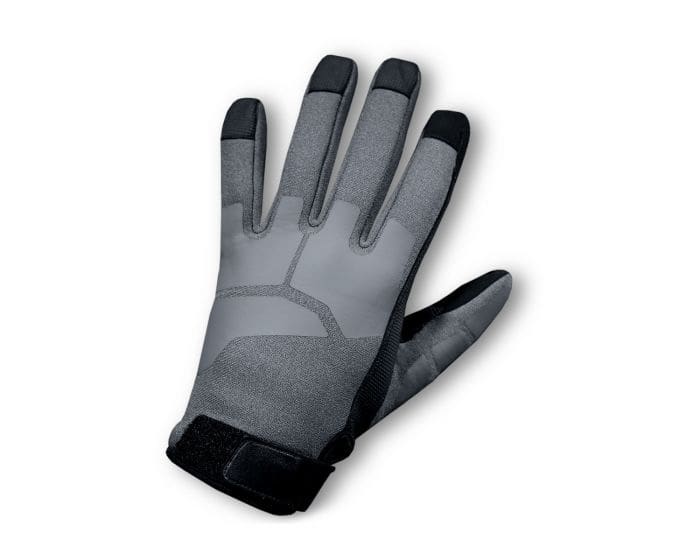
That said, S&S makes all their stuff to be used in the water as the owners come from a water background. I like gloves that can hold onto something medal, like if you have to climb a caving ladder or hold onto a gun—also holding plastic like a navigation board or working plastic buckles. Many dive gloves have small plastic beads on them that are not the best for working in the water. It is hard to find a good pair of thick dive gloves that meet the above requirements. If you have to be on a boat or mostly about the water, you can get a pair of dive gloves that are a couple sizes bigger than you usually would wear and put wool gloves on as a base layer. Even when wet, Wool will still hold heat in, and the dive gloves will help keep your hands warm and dry. The same trick works with gloves you will see fisherman use. You can also bring a thinner set of gloves like 1.5mm with you and change them out a couple of minutes before hitting the target. You can try with a thinker pair of gloves to put a set of work gloves on over them. That way, you always have the right grip.
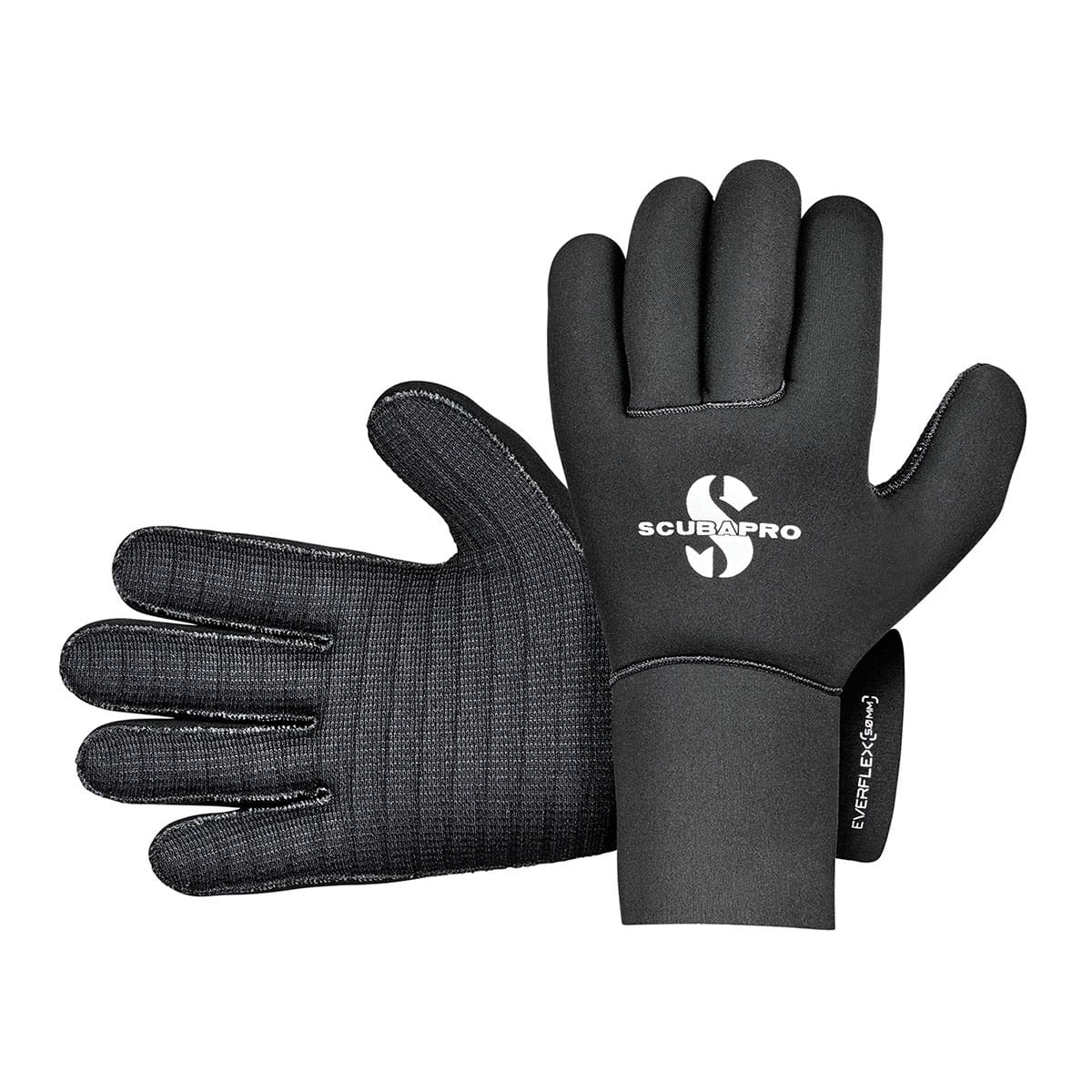
When choosing the right glove, they should fit well enough to avoid water circulation inside as much as possible this will help keep the heat. They should not be so tight because that will cut off circulation to your hands. The thicker the gloves, the more insulated you have, but the tradeoff is this might give you less mobility. So, it will be difficult to manipulate the equipment and also to done and doff them. Choose the gloves that you think will protect you enough for the type of water you will perform most dives. You will want gloves to fit your wrist close to reducing the bulge that can happen if there is too much material between your sleeves and gloves. If you don’t do this right, just moving your hands will let water in, and it will make your hands and you cold.
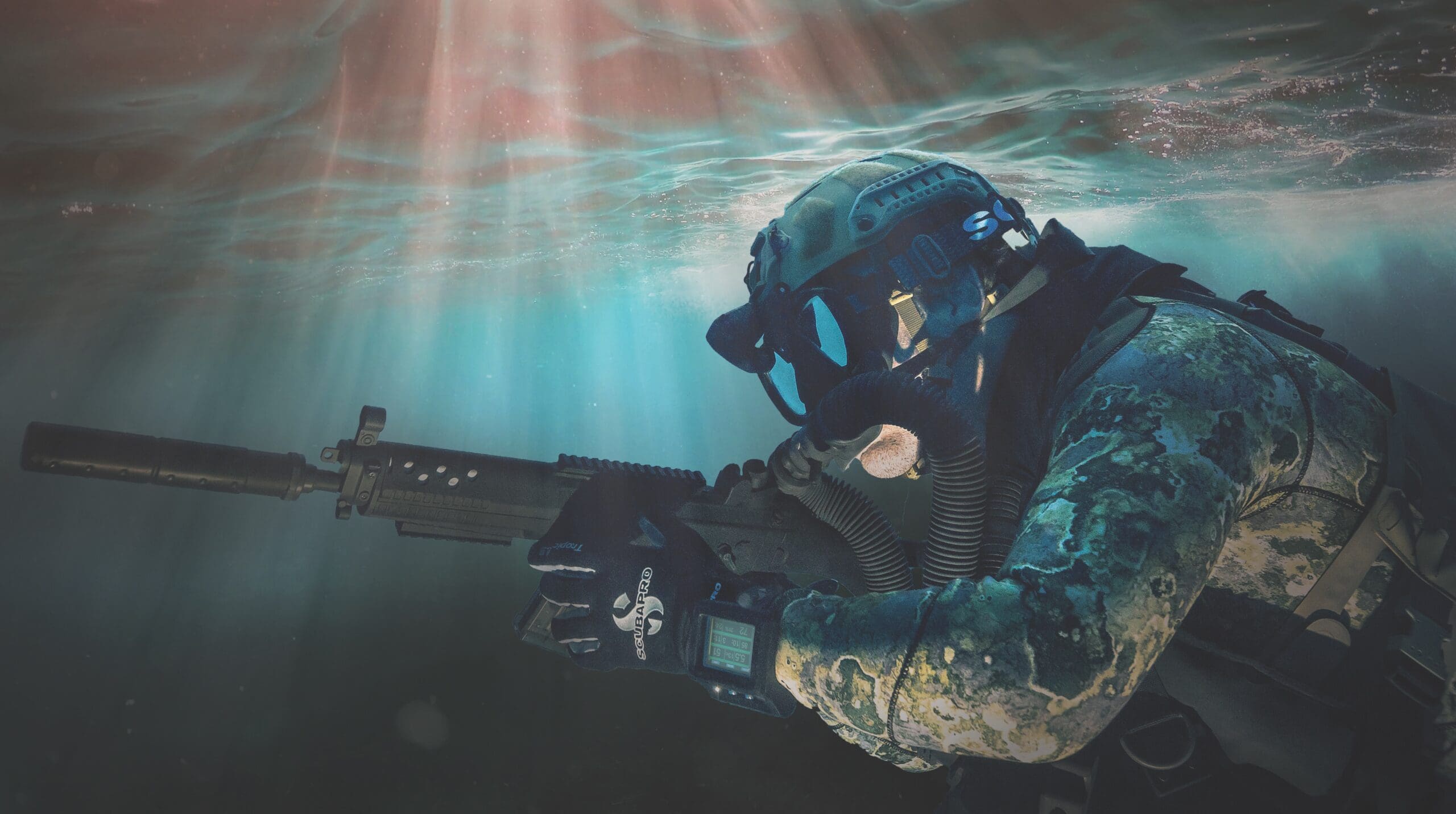
Dive Gloves Maintenance Tips
Treat dive gloves like you treat anything you want to last. It would help if you cared for gloves like you treat your wetsuit. They should be soaked in freshwater after each dive and not just rinsed. You want to force the salt out. Please do not put them in the washing machine or use detergents to clean your wetsuits or gloves. Allow them to dry in a ventilated place until completely dry. Textile gloves take longer to dry. Do not dry them in the sun, as with all neoprene, it will cause them to age faster.
Images by Paul Wildman (@builtbywildman) ©Paul Wildman


I know nothing about SCUBA… however, that SG552(3?) looks awesome.
I really wish SIG USA would have gone that route over the 556 they tried to produce domestically.
Which countries use the 552? I was under the belief that system is now obsolete.
Great article. Thanks. The ones who mess on/under water knows how important is to have the right gloves on.